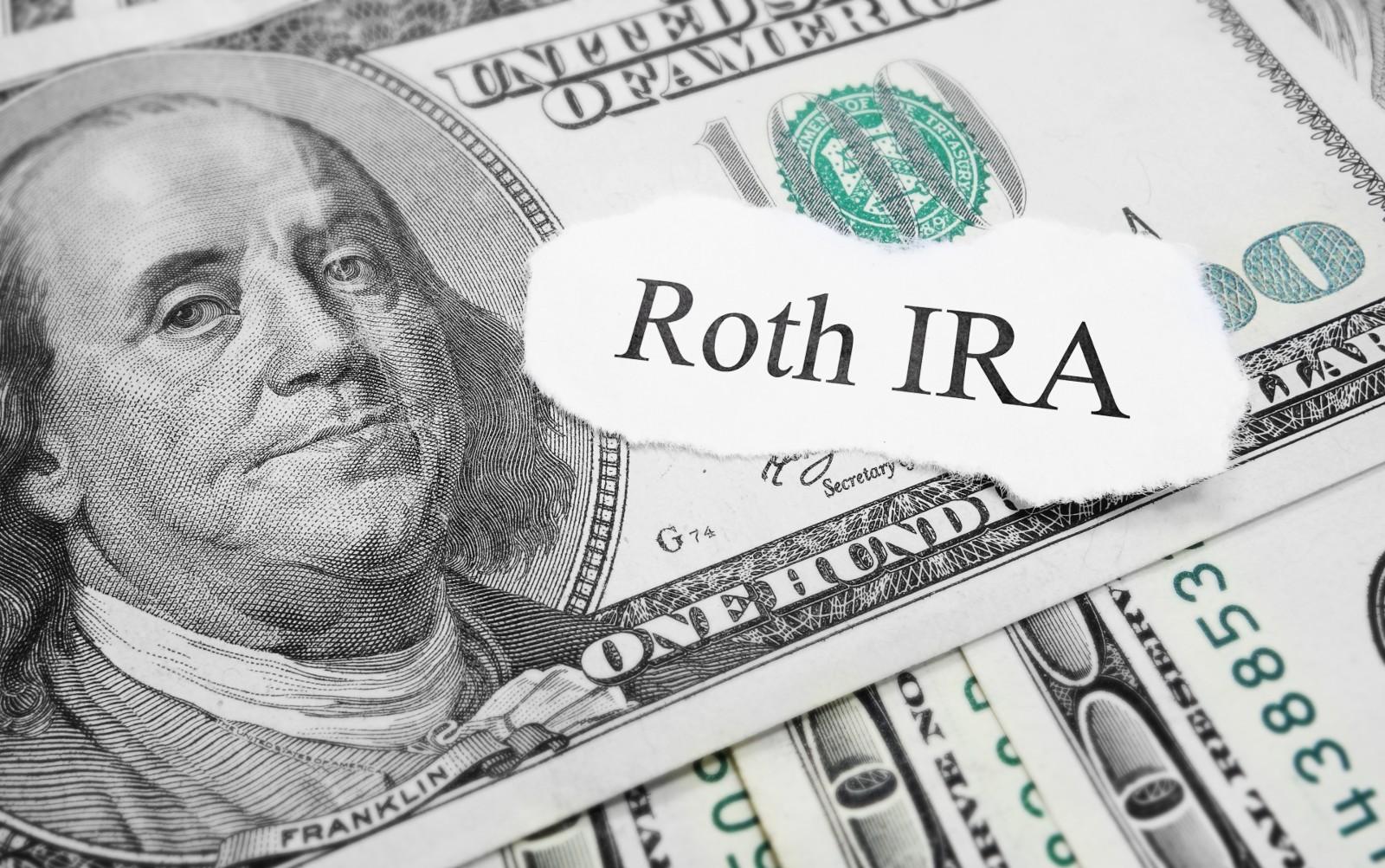The Beginner's Guide to Roth 401(k): A Powerful Retirement Planning Tool William Bevins CFP CTFA, Nashville fiduciary advisor offering fee-only wealth management advice.
Introduction to Roth IRA and Its Usefulness
When it comes to retirement planning, one of the most powerful tools available is the Roth IRA. Named after Senator William Roth, who introduced the legislation in 1997, the Roth IRA offers unique advantages that make it an attractive option for investors looking to secure their financial future. In this beginner's guide, we will explore what a Roth IRA is, its usefulness, and how it differs from other IRA plans.
Understanding Roth IRA and its Creation
The Roth IRA is an individual retirement account that allows individuals to contribute after-tax dollars with the promise of tax-free withdrawals in retirement. Unlike traditional IRAs, which offer tax deductions on contributions but tax withdrawals in retirement, Roth IRAs provide a tax-free growth opportunity. These accounts were created by the Taxpayer Relief Act of 1997 as a way to encourage individuals to save for retirement and build tax-free wealth over time.
How Roth IRA Differs from Other IRA Plans
One of the key distinctions between a Roth IRA and other IRA plans is the tax treatment of contributions and withdrawals. While traditional IRAs offer tax deductions on contributions, Roth IRAs do not. However, the real advantage of a Roth IRA lies in its tax-free growth potential and tax-free withdrawals in retirement. This means that any earnings generated within the Roth IRA are not subject to taxes as long as certain conditions are met. Roth IRAs are a great financial planning tool.
Pros and Cons of Roth IRA Plans
Pros of Roth IRA Plans
Cons of Roth IRA Plans
Tax Advantages of Roth IRA Accounts Explained
One of the key reasons why Roth IRA accounts are highly regarded in the realm of retirement planning is their remarkable tax advantages. Understanding these advantages can help you make informed decisions about whether a Roth IRA is the right choice for your financial future. In this section, we will discuss the tax benefits of Roth IRAs in easy-to-understand terms.
Tax-Free Growth:
One of the primary advantages of a Roth IRA is the potential for tax-free growth. When you contribute to a Roth IRA, the money you put in has already been taxed. As a result, any earnings or investment gains within the account can grow tax-free over time. This means that you don't have to pay taxes on the growth of your investments as long as you follow the rules and wait until retirement to withdraw the funds. Ask William Bevins about how a Roth IRA can become a valuable wealth management tool.
Tax-Free Withdrawals:
Perhaps the most attractive feature of a Roth IRA is the ability to make tax-free withdrawals in retirement. Unlike traditional IRAs, where withdrawals are subject to ordinary income tax rates, qualified withdrawals from a Roth IRA are entirely tax-free. This can have a significant impact on your retirement income, as it allows you to access your savings without worrying about additional tax liabilities.
No Required Minimum Distributions (RMDs):
Traditional IRAs require you to start taking Required Minimum Distributions (RMDs) once you reach a certain age (currently 72 years old). However, Roth IRAs do not have RMDs. This means that you have more control over when and how you withdraw your funds. If you don't need the money right away, you can let your investments continue to grow tax-free for as long as you wish, providing the potential for even greater wealth accumulation.
Estate Planning Benefits:
Roth IRAs also offer advantageous estate planning benefits. Unlike traditional IRAs, which can trigger tax liabilities for your beneficiaries, Roth IRAs can be passed on to your heirs without them having to pay income taxes on the distributions. This can be a significant advantage when it comes to wealth transfer, allowing you to leave a tax-free inheritance to your loved ones.
It's important to note that while the tax advantages of Roth IRAs are highly beneficial, there are certain rules and restrictions to be aware of. For instance, contributions to a Roth IRA are made with after-tax dollars, meaning you don't get an immediate tax deduction like you would with a traditional IRA. Additionally, there are income limitations for contributing directly to a Roth IRA, although alternative strategies like the backdoor Roth IRA may be available for high-income earners. Consult an experienced tax advisor for help.
In conclusion, the tax advantages of Roth IRA accounts make them an attractive option for individuals seeking to maximize their retirement savings. The potential for tax-free growth, tax-free withdrawals in retirement, the absence of RMDs, and estate planning benefits provide a compelling case for considering a Roth IRA in your overall wealth management strategy. However, it's crucial to consult with a financial advisor or tax professional to ensure that a Roth IRA aligns with your specific financial goals and circumstances.
Income Limitations and Tax Rules
When it comes to contributing to a Roth IRA, income limitations apply. For 2024, the eligibility to contribute to a Roth IRA begins to phase out for individuals with a modified adjusted gross income (MAGI) of $140,000 (or $208,000 for married couples filing jointly). Beyond certain income thresholds, individuals may not contribute directly to a Roth IRA. However, they can explore alternative strategies such as the backdoor Roth IRA or utilize a Roth 401(k) if available through their employer.
The Role of a Financial Advisor in Roth IRA Planning
Navigating the complexities of retirement planning and investment management can be overwhelming, especially when it comes to maximizing the benefits of a Roth. Seeking the guidance of an experienced financial advisor can provide valuable insights and help you make informed decisions based on your unique financial goals and circumstances. A financial advisor can assist you in understanding the contribution limits, investment options, and tax implications of a Roth, ensuring that you optimize your retirement savings.
Contributions to Roth IRA and 401(k) in the Same Year
It is possible to contribute to both a Roth and a 401(k) in the same year. The contribution limits for each account are separate, so you can take advantage of the tax benefits offered by both. For 2024, the contribution limit for a Roth is $7,000 (or $8,000 if you are 50 years or older), while the contribution limit for a 401(k) is $23,000 (or $30,500 for individuals aged 50 or older). By contributing to both accounts, you can diversify your retirement savings and potentially lower your tax burden.
Converting Traditional IRA to Roth IRA and Its Advantages
If you already have a traditional IRA and are considering a Roth, you may have the option to convert your existing account. A conversion involves transferring funds from a traditional IRA to a Roth, which may trigger taxes on the amount converted. While paying taxes upfront may seem counterintuitive, converting to a Roth IRA can provide long-term benefits, such as tax-free growth and withdrawals. Additionally, by converting during a year when your income is lower, you can potentially reduce the tax impact.
Wrapping Up
In summary, a Roth is a powerful retirement planning tool that offers unique benefits such as tax-free growth and withdrawals in retirement. Despite the income limitations and potential conversion taxes, a Roth can be a valuable addition to your investment portfolio, providing tax-free income and flexibility in retirement. By working with a knowledgeable financial advisor and understanding the contribution limits and tax rules, you can make the most of this tax-efficient savings vehicle and set yourself on a path towards a secure financial future.
Remember, whether you're retirement planning in Spring Hill TN, or anywhere else, taking proactive steps today can help you achieve the retirement lifestyle you envision. Start exploring the benefits of a Roth and make informed decisions about your retirement planning and investing for a brighter tomorrow.
About William Bevins CFP® CTFA
William Bevins has spent a career in finance, investing, and advice. Today, William serves as a fiduciary advisor offering clients of all economic backgrounds help with investing, wealth creation, retirement planning, and more. Reach William at his email address - [email protected] or visit his website WilliamBevins.com. Follow on Facebook




